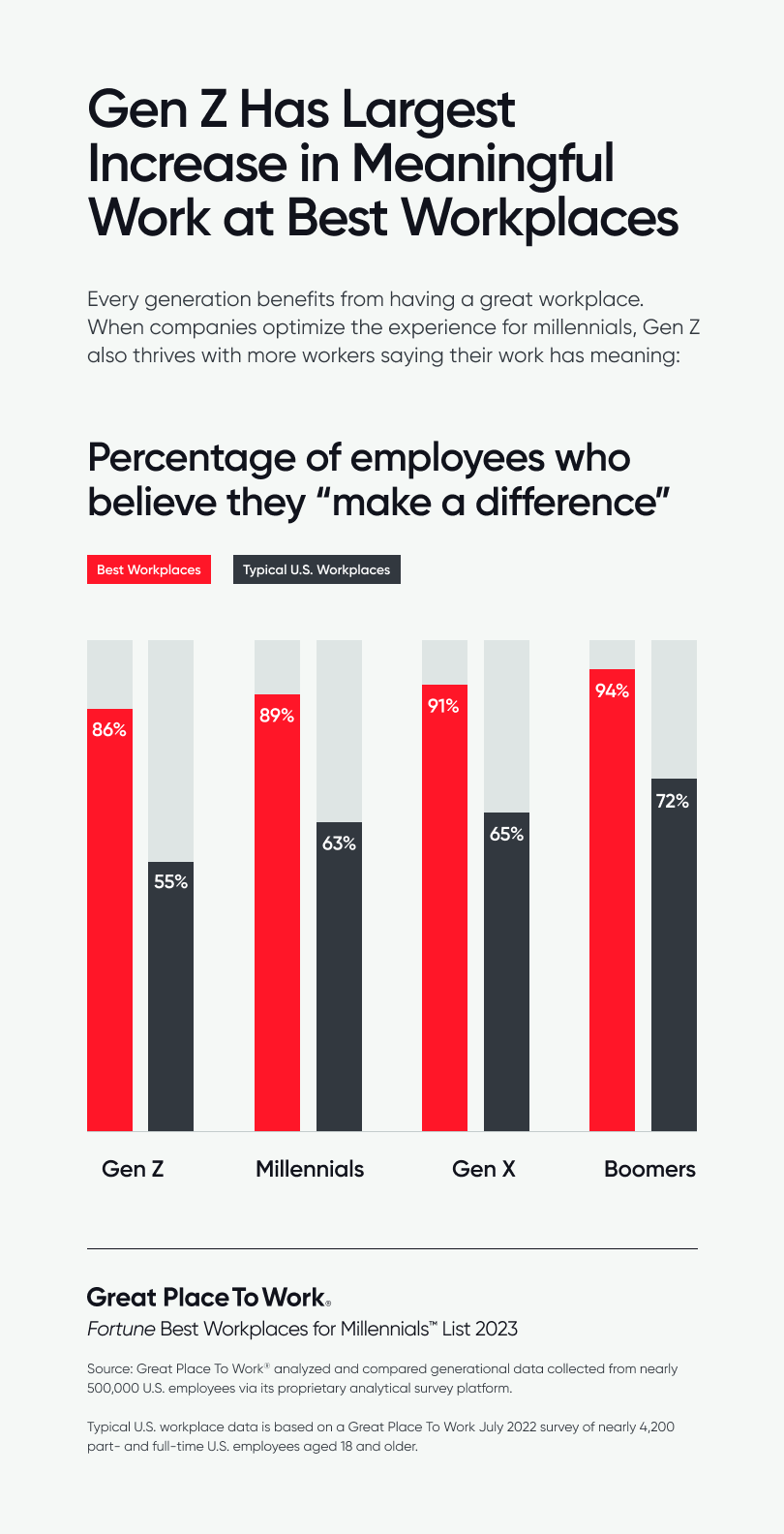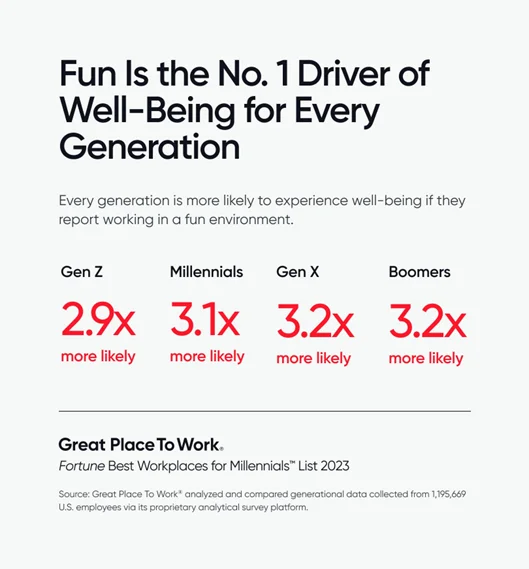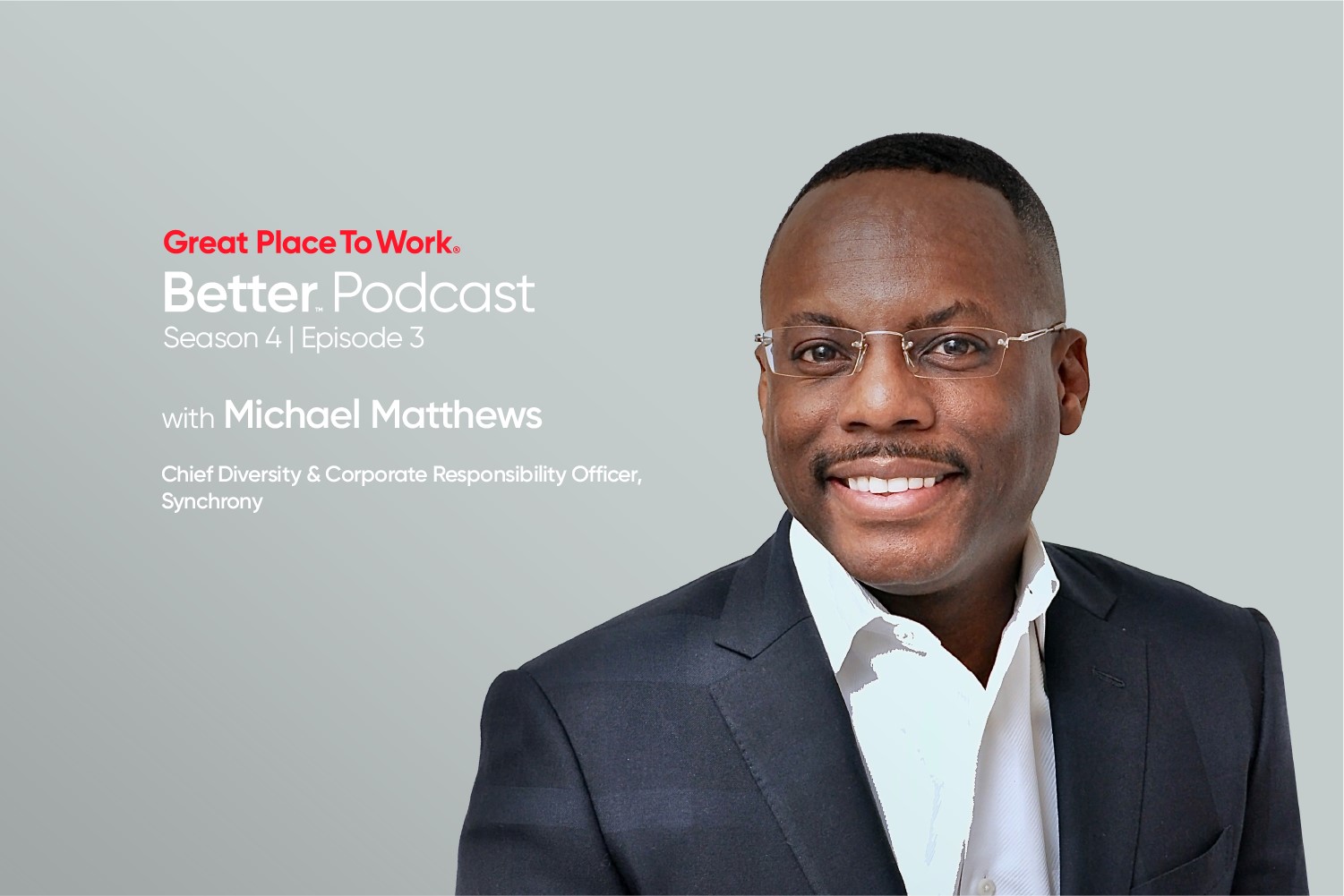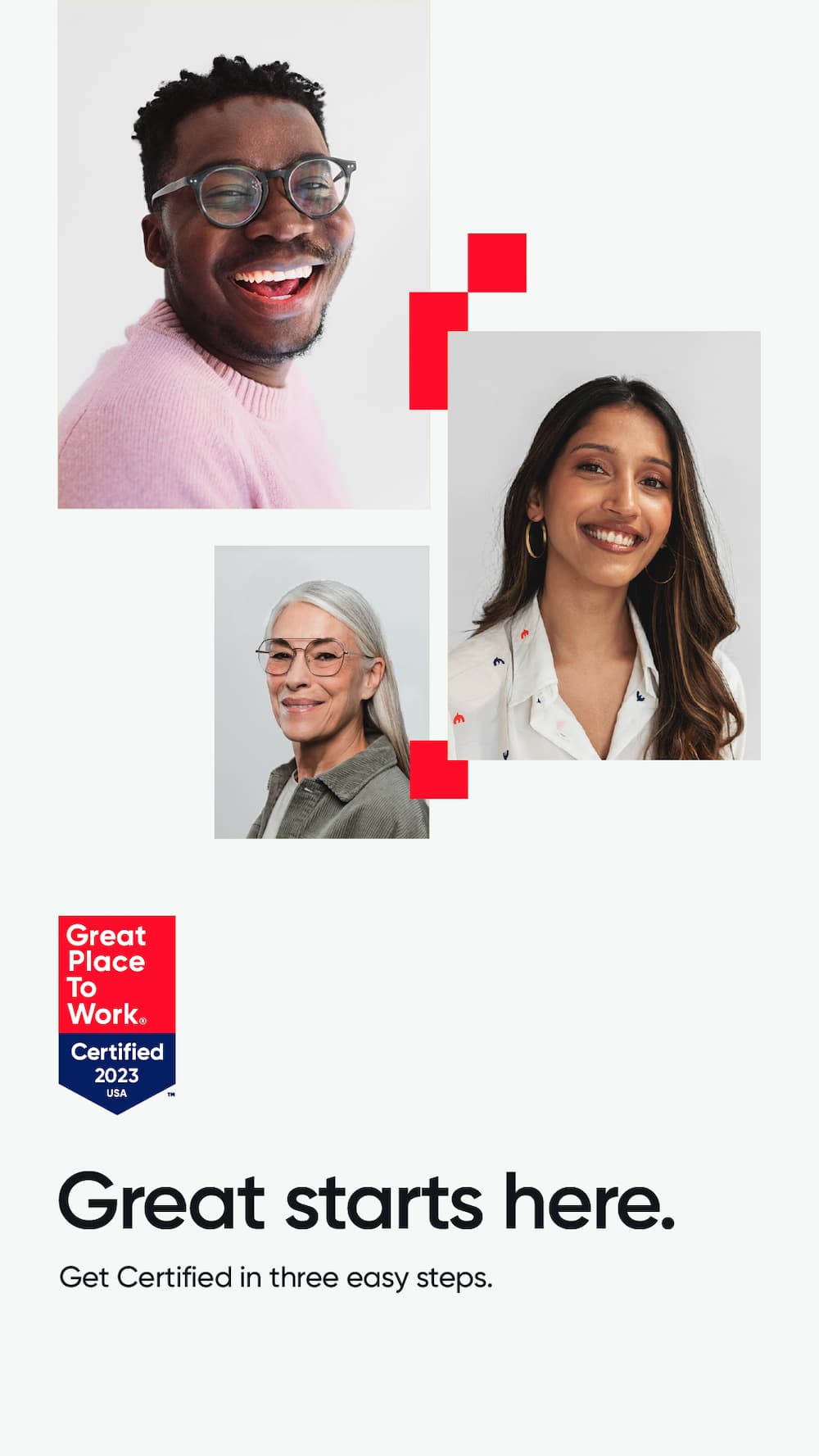Employee Engagement, Gen Z, Generations at Work
Here’s how younger workers benefit from working at high-trust workplaces.
Are Gen Z workers just looking for a “lazy girl job”?
The latest viral TikTok sensation that encourages younger workers to opt out of traditional career trajectories is a response to hustle culture and “leaning in” espoused by Sheryl Sandberg.
Instead of going above and beyond, the ethos of the lazy girl job is all about meeting the requirements without giving extra effort.
Just like “quiet quitting” before it, this new buzzy phrase may concern business leaders looking to engage and attract young talent to their companies.
However, when you dig into the data on how Gen Z workers are experiencing the workplace, the answers are simple.
Gen Z workers benefit enormously from working in a high-trust workplace, where leaders actively engage with them, and the company makes an effort to ensure their work has meaning. When Gen Z workers experience this, they are more likely to give extra effort — no matter what their peers are doing on TikTok.
What Gen Z wants
How can employers create experiences that engage Gen Z employees? Great Place To Work® surveyed more than 500,000 employees in the U.S. to understand how different generations felt about their workplace.
Companies on the 2023 Fortune Best Workplaces for Millennials™ List offer a compelling benchmark for how younger employees can feel included and encouraged. While the list prioritized the experience of workers in the millennial generation, our data showed that Gen Z workers also fared much better at these companies than at a typical U.S. workplace.
Save the date: Attend our annual company culture conference May 7-9, 2024
Here’s what the data says Gen Z needs to thrive in your company:
1. Meaningful work
When comparing high-trust workplaces to the typical U.S. workplace, Gen Z workers saw the biggest improvement in feeling they “make a difference” compared to other generations.

Not only are 56% more Gen Z workers reporting they “make a difference” at the best workplaces, but the gap between generations also shrinks.
At the typical U.S. workplace, 17 percentage points separate Boomers and Gen Z with almost half of Gen Z workers saying their work isn’t meaningful. At Best Workplaces, the gap is only eight percentage points.
As the employee experience improves, the generation to which an employee belongs matters less than the company they work for. Young employees are more likely to quit a job, not because of their age or personal temperament, but because their employer hasn’t managed to engage them.
Across all generations, the top driver of employee retention is having meaningful work. When employees report that their work has “special meaning,” they are more than two times as likely to stay in their job.
What does it look like to help employees have meaningful work?
At NVIDIA, leaders believe in creating a supportive environment to “do your life’s work.”
That doesn’t mean NVIDIA employees have to cure cancer or solve world hunger, says David Luebke, vice president for graphics research at NVIDIA. “But there should be something — an undertaking you take on with purpose to make the world a slightly better place.”
NVIDIA’s younger employees in turn say that their work is meaningful when they feel trusted and empowered to work on important projects and receive mentorship from senior leaders.
“It’s very rewarding to work at NVIDIA and to collaborate on projects with great people,” says Aiden Di, a hardware intern in Shenzhen. “At NVIDIA, interns are trusted and respected by others to contribute to projects.”
And when interns and junior staff feel supported to develop their careers, they often become powerful employee advocates.
“During my internship at NVIDIA, I worked on meaningful projects, developed my communications skills, and — most of all — was blown away by my team’s genuine, abounding generosity in support and spirit,” says Angie Lee, corporate communications manager and former intern from Stanford University.
“Upon graduating, I was immensely thankful to be able to return — to continue learning and growing at a company that’s tackling some of the world’s greatest challenges.”
2. A fun workplace
Having fun at work is an important driver of well-being for every generation.

And for Gen Z workers, well-being in the workplace is far from guaranteed.
At the typical U.S. workplace, Gen Z workers are struggling to find balance and support. Only half (51%) report having a psychologically and emotionally healthy workplace, according to a Great Place To Work study. About two-thirds of Gen Z workers believe their co-workers care about them (63%) and that they can be themselves at work (64%).
Great workplaces prove that those numbers could be much higher, with 84% of Gen Z workers at companies on the Best Workplaces for Millennials List reporting a psychologically and emotionally healthy workplace.
3. Fair treatment, regardless of age
One way to help employees of different generations connect is to offer employee resource groups (ERGs) or dedicated networks to foster relationships.
Interestingly, many companies are creating networks that span all generations, not just focusing on an in-group of similar ages and life experiences.
American Express merged its ERG for millennials and its ERG focused on generations to form the network NextGen. The new group represents all four generations currently working at the company: Boomers, Gen X, millennials, and Gen Z.
The result is that employees can be heard from every stage of the career journey, and employees can connect with one another on shared interests.
This is an example of how companies can address an important need for Gen Z: Not having their age count against them in the workplace.
When Gen Z workers say they feel treated fairly regardless of their age, they are 1.5 times more likely to say they experience well-being. They aren’t the only generation that benefits from feeling like their age isn’t used to discriminate against them.
Gen X and Boomers are also 1.6 times more likely to experience well-being if they report being treated fairly regardless of age.
Dow also launched ERGs designed to address important career experiences for older and younger employees. In employee surveys, older workers reported feeling left behind and newly joined employees felt the company could do a better job welcoming them.
To respond, Dow launched “RISE,” an ERG that offers mentorship, career development, peer networking and more for new employees. For more seasoned employees, it launched “PR!ME,” an ERG designed to help employees age 50 and older to fulfill their unique needs.
The groups were a success, with Dow gaining three percentage points on its Trust Index™ survey results for if employees felt treated fairly regardless of age.
Learn about your Gen Z employees
See how different generations are experiencing your company culture with Great Place To Work Certification™.













